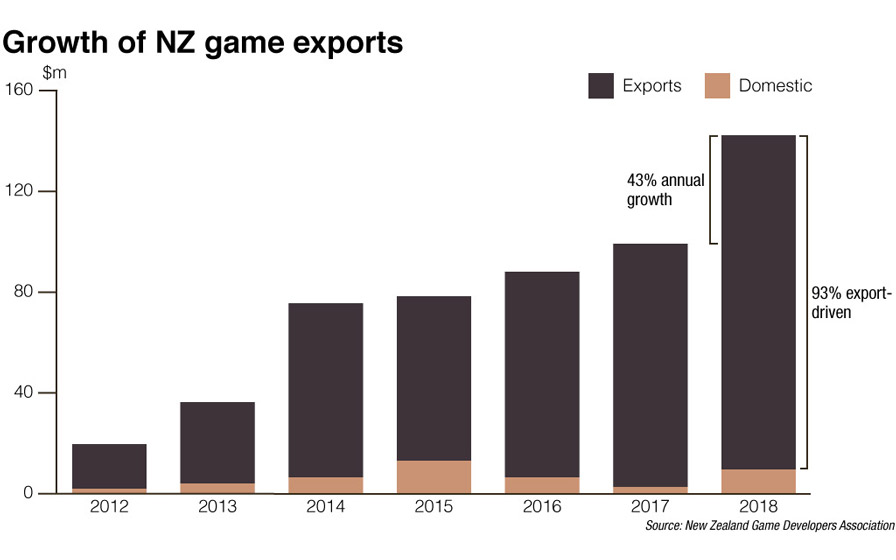
NZ gaming industry revenue up 43% on last year
Kiwi game developers earned $143 million in the past year.

Kiwi game developers earned $143 million in the past year.
New Zealand’s half a billion dollars interactive gaming industry continues to grow on the back of IP exports.
New Zealand game developers earned $143 million, a 43% rise, in the financial year ended March 31, according to an independent survey by the New Zealand Game Developers Association.
Association chairman Michael Vermeulen says that success comes from studios developing and exporting their own original game IP, rather than contracting for publishers or Hollywood studios.
Exports of digital creative entertainment software made up the bulk (93%) of revenue. Employment in the sector also grew 10% to 550 fulltime roles.
He expects the industry to follow the same trajectory next year, with 63% of studios expecting more than 10% growth in the coming year.
Last month, Auckland-based Ninja Kiwi’s ‘Bloons Tower Defence 6’ became the No 1 paid app in the world, ranking above Minecraft, on both the Apple and Android app stores.
This year Grinding Gear Games, also Auckland-based, was acquired by the world’s largest games publisher Tencent for over $100M – one of the largest tech exits in New Zealand history.
The combined value of software development earnings and local consumer spending totals $595m.
In addition to making video games, New Zealanders spent $118m in retail stores on games and $334m on digital and mobile gaming during 2017, according to figures from the Interactive Games Entertainment Association.

Sector imbalance
Mr Vermeulen says the industry requires more initial development and marketing investment, which is lacking in the New Zealand gaming ecosystem.
There is also a vast disparity in the sector.
The 10 largest studios in New Zealand earned 94% of the revenue and employed 81% of the industry, he says.
“While those trailblazers have proved games can be a sustainable and profitable business, we’re not seeing a pipeline of new fast-growing studios to join their ranks.”
According to the survey, 24% of studios thought skills shortages were constraining the growth of their business, especially for experienced senior staff.
Many experienced developers come from offshore, with seven studios employing 84 staff on work supported visas – 15% of the entire industry.
Other barriers to growth identified are difficulties attracting early-stage funding, expansion capital, the quality and experience of graduates and attracting international projects, Mr Vermeulen says.
Diversity continues to be a priority for the Game Developers Association as the sector has only 21% female employees, Mr Vermeulen says. The association runs many programmes to attract and retain female game creators, including special events during this week’s conference.
Support for startup game businesses is being probed in a report on Interactive Media and Video Games being undertaken by NZ Tech and the association.
Sign up to get the latest stories and insights delivered to your inbox – free, every day.